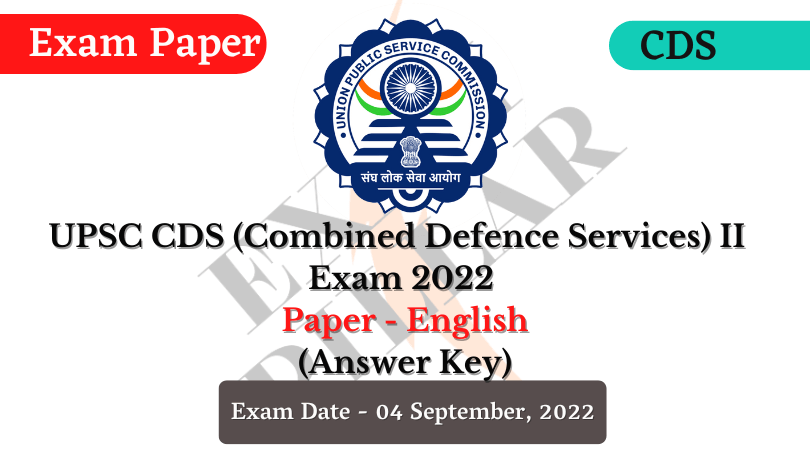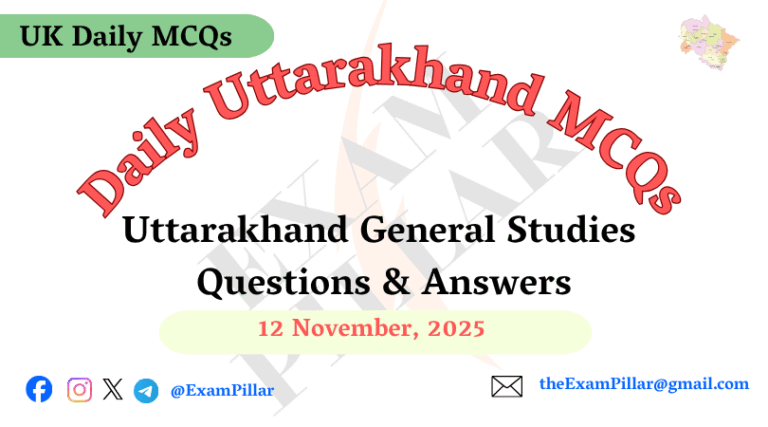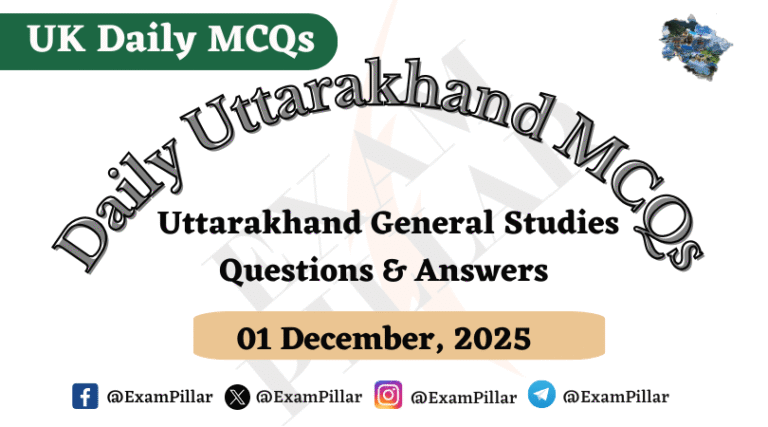ORDERING OF SENTENCES
Directions: In the following item, the passage consists of six sentences. The first and sixth sentence are given in the beginning as S1 and S6. The middle four sentences in each have been removed and jumbled up. These are labeled P, Q, R, and S. You are required to find out the proper sequence of the four sentences and mark your response accordingly on the Answer Sheet.
81.
S1: A licensee who wants to surrender his license shall apply in Form X to the licensing Officer.
P: This shall not entitle the licensee to any compensation by way of license fee in any form.
Q: If the licensing officer is satisfied, he may accept the surrender.
R: The license shall be deemed to have been terminated from the date of such acceptance.
S: The application shall be accompanied by a declaration of stock in Form V.
S6: The licensee who has surrendered his license shall be allowed to sell the antiquities declared to another licensee or a recognized museum in India.
(a) PQRS
(b) SRQP
(c) SQRP
(d) SQPR
Click To Show Answer/Hide
82.
S1: Haryana has achieved the 2nd rank among States in Logistics Ease Across Different States (LEADS) – 2021 report.
P: This makes Haryana a top performer in the northern cluster of land-locked States.
Q: The State has taken a leap from the 6th overall position in the previous evaluation (2019).
R: The improvement in ranking reflects focused initiatives by the State in improving the : : infrastructure.
S: The report aims to evaluate and rank States/UTs based on the efficiency of their logistics and initiatives taken.
S6: LEADS 2021 framework evaluated States / UTs on 21. indicators, including 17 perceptions and four objectives-based indicators.
(a) QRPS
(b) QSPR
(c) SRQP
(d) RQSP
Click To Show Answer/Hide
83.
S1: Wind power is an inexhaustible source of clean energy.
P: During the last decade, power production from the wind increased more than 25%.
Q: Although the cost of electrical energy produced by the wind depends on favourable sites for the location of wind turbines, wind power is already cost competitive with power produced from fossil fuels.
R: Much of the growth was in Europe, where most of the world’s 17,000 megawatts of wind power is generated.
S: One expert calls wind generation the fastest-growing electricity-producing technology in the world.
S6: As examples, 13% of Denmark’s power and more than 20% of power in the Netherlands, Spain and Germany is supplied by the wind.
(a) PQRS
(b) SRPQ
(c) QSPR
(d) RPSQ
Click To Show Answer/Hide
84.
S1: Education, it is believed, is inseparable from our societal aspirations,
P: Education, as many would argue, was for realization of the Ultimate and the Absolute.
Q: In ancient times, for example, there was a distinctive spiritual meaning associated with education.
R: As these aspirations /world views undergo a process of transformation with the changing times, so does the meaning for education.
S: It was to overcome the finiteness of existence: all earthly temptations and desires.
S6: But, for a modern / technical mind, this preoccupation with supreme spiritual knowledge may not hold such fascination.
(a) RPSQ
(b) SRQP
(c) QRPS
(d) RQPS
Click To Show Answer/Hide
85.
S1: He resisted colonial education not just because it came from the West.
P: Essentially, he disliked its inherent elitism, its irrelevance as far as the needs of India’s rural masses were concerned.
Q: For example, it was difficult for him to accept English as the medium of instruction, because he felt that it has created a permanent bar between the highly educated few and the uneducated many.
R: Moreover, with his profound pedagogic sensitivity he could see the damaging effect of colonial Education.
S: He also felt that English made one a stranger in one’s own land.
S6: Besides, with this kind of education, one could not appreciate the dignity of manual labour.
(a) PRQS
(b) SQPR
(c) PQRS
(d) QRSP
Click To Show Answer/Hide
86.
S1: A corpus is an abundant source of samples of English usage.
P: If this is to be of the meaning that has been previous explained, they cannot just be picked out of the corpus at random.
Q: If they are to function as examples, however, then we need to ask just what it is they are intended to be examples of.
R: Samples of the language, isolated from their natural context of use, will not normally exemplify word meanings, but will simply show one instance of the word’s actual occurrence.
S: This is because the context will usually make it unnecessary to spell the meaning out.
S6: It is not only the previously explained meaning of the word that we might want a sample to exemplify, however, but also its collocational tendencies.
(a) QPSR
(b) RPSQ
(c) PQRS
(d) SPQR
Click To Show Answer/Hide
87.
S1: Historians have often explained religious and social reform in India in the nineteenth century as a result of the Western impact upon the minds of men.
P: With that purpose, we seek to analyze the thoughts and activities of individuals who were both religious reformers and vernacular publicists.
Q: The equation of westernization and modernization has given way to a search for the indigenous sources of social changes.
R: Recognizing the modernity of tradition is one thing however, whereas understanding the intellectual processes that produced indigenously generated change is another.
S: Others have recognized that this was entirely too simple an explanation for the intellectual and social changes that took place in India and other places that fell under the foreign colonial rule.
S6: Each of these vernacular-using reformers derived his arguments from within his own tradition.
(a) QRSP
(b) RQPS
(c) SQRP
(d) SPRQ
Click To Show Answer/Hide
88.
S1: The country has experienced unprecedented economic development since the adoption of the New Economic Policy in the year 1999.
P: The middle classes have been the greatest beneficiary of the policy, who today enjoy far greater .. levels of income than their previous generations.
Q: In the immediate aftermath of the newly announced policy, there was apprehension in the minds of the people.
R: Within a few years, however, the beneficial impact of the newly announced policy became manifest through higher GDP and a thriving economy.
S: Faced with a critical foreign exchange crisis, the country adopted the policy in the Union Budget presented in the year 1999.
S6: If the country dreams of a much larger economy today, much of the optimism is due to the policy changes that took place in the year 1999.
(a) SQRP
(b) RQSP
(c) SPRQ
(d) QSPR
Click To Show Answer/Hide
89.
S1 : The Indian co-operative movement is probably one of the largest, strongest and the oldest in the world with widespread spatial coverage, diversified business activities and ample success stories.
P: It has celebrated its Centenary very recently.
Q: It is structured around the Rochdale Principles and Raiffeisen Model in wake of miseries of peasantry.
R: It is termed as the “economic miracle” of the last century.
S: Ever since the officially sponsored Act of 1904, the Movement has passed through a number of phases.
S6: Co-operatives have been organized in areas like credit, marketing, distribution, dairy development, industry, sugar and so on.
(a) QRPS
(b) RPQS
(c) PQRS
(d) SQRP
Click To Show Answer/Hide
90.
S1: Degenerative and man-made diseases, or rather, non-communicable diseases mark epidemiological transition in the contemporary world.
P: Scholars reiterate that epidemiological transition and structural change in the disease pattern are inevitable.
Q: This transition is the result of rapid increments in urbanization and industrialization.
R: He argued that the disease pattern is shifting from the predominance of infectious and parasitic diseases to chronic and man-made diseases.
S: Omran’s epidemiological transition theory, 1971 portrayed a clear picture of the changing pattern of diseases prevalent all over the world.
S6: This transition has led to the rise of living standards in general, whereby people enjoy a sedentary lifestyle with good socio-economic profile.
(a) SRQP
(b) PSRQ
(c) PQRS
(d) RQPS
Click To Show Answer/Hide
WORD MEANING
Directions : In the following questions a particular word is provided. Four sentences have been framed, one of which makes use of the word correctly. You are required to select the correct option and mark your response on the Answer Sheet accordingly.
91. ‘Alibi’
(a) The accused was acquitted because he provided an alibi.
(b) The accused was acquitted because his alibi was not accepted.
(c) The accused was acquitted because his alibi was false.
(d) The accused was convicted because he provided an alibi.
Click To Show Answer/Hide
92. ‘Continuously’
(a) The waves lapped upon the shores continuously.
(b) The fellows at the academy follow their exercise routine continuously.
(c) The giant piston at the oil rig hammered the ground continuously.
(d) The water was flowing from the leaking tap continuously.
Click To Show Answer/Hide
93. ‘Elicit’
(a) The call centre’s operations were found to be elicit.
(b) The elicit ties between them were discovered by chance.
(c) The demand for further information did not elicit an enthusiastic response.
(d) The elicit reasons stated were found to be insufficient.
Click To Show Answer/Hide
94. ‘Climactic’
(a) The climactic degradations shall lead to cataclysmic weather change.
(b) The climactic changes in the environment will impact the entire world.
(c) The climactic outcomes of restrained sustainability are positive.
(d) The climactic changes presaging environmental disaster are predicted to unfold soon.
Click To Show Answer/Hide
95. ‘Affect’
(a) The new diet did not seem to have any affect on her health.
(b) For the new scheme to take affect, certain conditions have to be met.
(c) In affect, we are back to where we were before.
(d) The changed circumstances seemed to visibly affect her.
Click To Show Answer/Hide
96. ‘Discrete’
(a) The manager was asked to make discrete enquiries about the new client.
(b) The discrete : noise-cancelling headphones are very expensive.
(c) The discrete series had many intervening gaps.
(d) It is important to be discrete while dealing with sensitive material.
Click To Show Answer/Hide
97. ‘It’s
(a) It’s nature is susceptible to rapid change.
(b) What is it about it’s performance that has impressed you ?
(c) It’s imperative that you study hard for success.
(d) What about it’s value in the international market ?
Click To Show Answer/Hide
98. ‘Amidst’
(a) Amidst them who do you think is Vi better?
(b) There was a lot of confusion amidst his mind.
(c) Amidst all the confusion the thief managed to slink away unnoticed.
(d) Who amidst you shall be brave enough to pick up the gauntlet?
Click To Show Answer/Hide
99. ‘Less’
(a) There are less than fourteen people attending the seminar.
(b) Less states are fulfilling the targets set by the union ministry.
(c) There is less sugar in the tea than what I asked for.
(d) There are very less days left before the examinations begin.
Click To Show Answer/Hide
100. ‘Practise’
(a) It is common practise to greet friends during festivals.
(b) It has been the practise of academics to recommend students for higher studies
(c) What is the particular practise of your neighbours that you are objecting to ?
(d) It is important to practise regularly to ensure good performance on match day.
Click To Show Answer/Hide





Leave a Reply